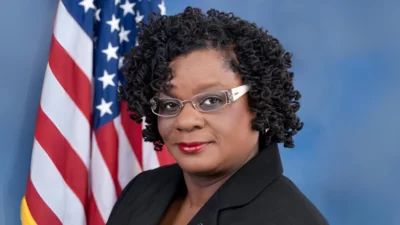Chuck Wichgers, Wisconsin State Representative for 84th District | Official Website
Chuck Wichgers, Wisconsin State Representative for 84th District | Official Website
According to the Wisconsin State Legislature's official website, the bill was described as follows: "classification of the crime of impersonating law enforcement officers, fire fighters, and certain other emergency personnel and providing a penalty".
The following is our breakdown, based on the actual bill text, and may include interpretation to clarify its provisions.
In essence, the bill proposes amending existing statutes to reclassify the crime of impersonating law enforcement officers, firefighters, or certain other emergency personnel from a Class A misdemeanor to a Class I felony. This change reflects a more severe penalty for those who impersonate peace officers, firefighters, emergency services medical practitioners, or emergency medical responders with the intent to deceive others into believing they hold these official positions. The bill outlines this reclassification in the pertinent sections of the statutes, indicating the state's intent to impose stricter consequences for such offenses. No specific effective date is mentioned within the bill's text.
The bill was co-authored by Senator Jesse L. James (Republican-23rd District), Representative Bob G. Donovan (Republican-61st District), Representative Rick Gundrum (Republican-58th District), Representative Rob Kreibich (Republican-28th District), and Representative Dave Maxey (Republican-83rd District). It was co-sponsored by Senator Julian Bradley (Republican-28th District) and Senator Steve L. Nass (Republican-11th District).
Chuck Wichgers has co-authored or authored another 71 bills since the beginning of the 2025 session, with none of them being enacted.
Wichgers, a Republican, was elected to the Wisconsin State Assembly in 2025 to represent the state's 84th Assembly district, replacing previous state representative Bob Donovan.
In Wisconsin, the legislative process starts when a senator, constituent, group, or agency proposes an idea for a bill. After drafting, the bill is introduced, numbered, and referred to a committee for review and public input. If approved, it moves through three readings and votes in both the Senate and Assembly. Once both chambers pass the same version, the bill goes to the governor, who can sign it, veto it, or let it become law without a signature. Only a small share of bills introduced each session ultimately become law. You can learn more about the Wisconsin legislative process here.
| Bill Number | Date Introduced | Short Description |
|---|---|---|
| AB136 | 03/13/2025 | Classification of the crime of impersonating law enforcement officers, fire fighters, and certain other emergency personnel and providing a penalty |
| AB37 | 02/17/2025 | Personalized registration plate fees for gold star family special registration plates. (FE) |
| AB36 | 02/17/2025 | Law enforcement and firefighter annuitants in the Wisconsin Retirement System who are rehired by a participating employer. (FE) |
| AB33 | 02/17/2025 | Representations depicting nudity and providing a penalty |






 Alerts Sign-up
Alerts Sign-up